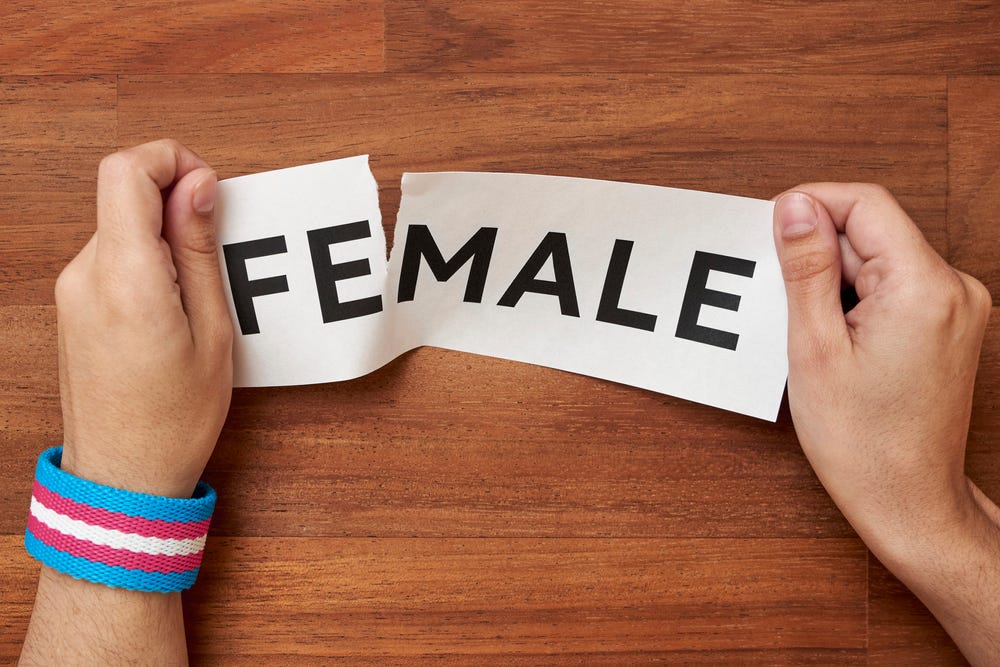E-Pluribus | June 14, 2022
The many faces of 'Woke Capitalism', what is What is a Woman? about, and progressive groups are increasingly training their fire internally.
A round-up of the latest and best writing and musings on the rise of illiberalism in the public discourse:
Brian Knight: Woke Capitalism Isn’t a Thing—It’s Many Things
While acknowledging he’s not offering much in the way of answers, Brian Knight at Discourse Magazine does a good job of showing how complicated “woke capital” questions can be. Whichever side of the issue one leans toward, Knight’s hypotheticals are thought provoking and worth considering.
Perhaps the most recent high-profile example of politicized capitalism (which is a better term) is Disney announcing that it would work to oppose laws similar to legislation passed in Florida limiting how some topics are discussed in schools. In response, Florida’s Republican governor Ron DeSantis moved to strip Disney of its special tax district in the state. The governor’s action has led to significant disagreement among people who all profess to be pro-liberty and pro-market as to whether such an act is appropriate.
And it turns out that whether DeSantis’ action was justified has a lot to do with what harm, if any, Disney caused, to whom and how, and whether the response to that harm should involve government action. And it doesn’t stop with Disney because no two cases are necessarily alike.
[ . . . ]
These hypotheticals show just a fraction of the complexity that goes into questions of “woke capitalism.” All of the above cases involve employment decisions, some relating to Jane’s job performance but others to her outside activities. Some examples go to Jane’s ability to speak freely or, arguably, not be compelled to speak (by wearing a button), while others are more mundane. In some cases, the Hot Buttons’ owner is motivated by his own beliefs; in others he seeks to placate customers for purely business reasons. In still other cases, the motivation to fire Jane appears to be a desire not to associate with her, while in others it is to affect the broader political debate.
And this is just the tip of the iceberg. What if, instead of being motivated by religious beliefs, Jane is motivated by atheistic natural philosophy? What if, instead of a school board meeting, Jane is overheard eating in a restaurant? What if, instead of speaking respectfully at the school board meeting, Jane is hostile or even derogatory? What if Hot Buttons is a publicly traded firm, so instead of the owner deciding to fire Jane, it is a store manager with a fiduciary duty to shareholders?
Read the whole thing.
Leor Sapir: Transgenderism and the Therapeutic Attitude
In March 2022, Marsha Blackburn famously asked Supreme Court nominee Ketanji Brown Jackson to define 'woman’. At City Journal, Leor Sapir reviews Matt Walsh’s movie that uses Blackburn’s question as its title and allows transgender activists to reveal their own beliefs by largely just getting out of their way.
The [What is a Woman?] movie follows Daily Wire conservative commentator Matt Walsh as he exposes what transgender activism has done to the American mind, and it’s not pretty. The documentary has an almost Socratic feel to it. Walsh seeks out reputed authorities on the subject and, with only gentle prodding, gets them to lay bare the flaws in their own thinking. His strategy is less to debate than to expose—to step out of the way and let his interlocutors frankly embarrass themselves.
Walsh, for instance, effortlessly gets Michelle Forcier, a “gender affirming” pediatrician and assistant dean at Brown University’s medical school, to assert that what makes a chicken female is the fact that we “assigned” it that sex at birth, not the fact that it can lay eggs. Asked to explain what makes chickens different from kids, Forcier insists that chickens don’t cry or commit suicide. At the University of Tennessee, Patrick Grzanka, a professor of women’s studies, avows that he cannot—or will not—define the word that appears in his professional title. When Grzanka asks Walsh why he cares so much about the definition of woman, Walsh responds that he is interested in the truth. Grzanka, a taxpayer-funded employee of a state university with a motto that says, “You will know the truth and the truth shall set you free,” becomes irate. “Getting to the truth,” he asserts, is “deeply transphobic.”
[ . . . ]
The real lesson of What Is a Woman? is that the trans movement is fueled less by “gender ideology” than by an extreme form of expressive individualism with a distinctly therapeutic hue. Expressive individualism is the engine; gender ideology, the rudder. Justice, according to our therapeutic ethos, means self-expression, while injustice means forced repression of one’s innermost feelings, and it is in the realm of feeling that we tap into what is most real and valuable about ourselves. There are, to be sure, Marxist themes embedded here, but it is Rousseau and his sentiment of existence that is the true idol of our age. That’s why California representative Mark Takano, whom Walsh interviews, was surprised to learn that Walsh thought the trans struggle was about using women’s bathrooms or playing on women’s teams. In Takano’s view, it is about “the basic right to live.” A man whose feminine feelings are not “affirmed” as evidence of being a woman is, metaphysically speaking, as good as dead.
Read it all.
Ryan Grim: Elephants in the Zoom
Ryan Grim of the Intercept has a very long piece exposing the friendly fire that has a number of progressive activist groups pinned down and unable to function. As it turns out, the cancel culture is coming from inside the house.
[S]ometime in the summer [of 2021], the forward momentum stalled, and many of the progressive gains lapsed or were reversed. Instead of fueling a groundswell of public support to reinvigorate the party’s ambitious agenda, most of the foundation-backed organizations that make up the backbone of the party’s ideological infrastructure were still spending their time locked in virtual retreats, Slack wars, and healing sessions, grappling with tensions over hierarchy, patriarchy, race, gender, and power.
“So much energy has been devoted to the internal strife and internal bullshit that it’s had a real impact on the ability for groups to deliver,” said one organization leader who departed his position. “It’s been huge, particularly over the last year and a half or so, the ability for groups to focus on their mission, whether it’s reproductive justice, or jobs, or fighting climate change.”
This is, of course, a caricature of the left: that socialists and communists spend more time in meetings and fighting with each other than changing the world. But in the wake of Donald Trump’s presidential election, and then Joe Biden’s, it has become nearly all-consuming for some organizations, spreading beyond subcultures of the left and into major liberal institutions. “My last nine months, I was spending 90 to 95 percent of my time on internal strife. Whereas [before] that would have been 25-30 percent tops,” the former executive director said. He added that the same portion of his deputies’ time was similarly spent on internal reckonings.
“Most people thought that their worst critics were their competitors, and they’re finding out that their worst critics are on their own payroll,” said Loretta Ross, an author and activist who has been prominent in the movement for decades, having founded the reproductive justice collective SisterSong.
Read it all here.
Around Twitter
A thread from the Foundation for Individual Rights and Expression with an update out of Colorado on the rights of the accused:
With an intro from Cathy Young, here are excerpts from a long thread by Billy Binion on how law enforcement and the government can abuse their authority to threaten free speech:
And finally, via the Foundation Against Intolerance & Racism, Arthur Miller’s The Crucible may have new relevance in 2022:









